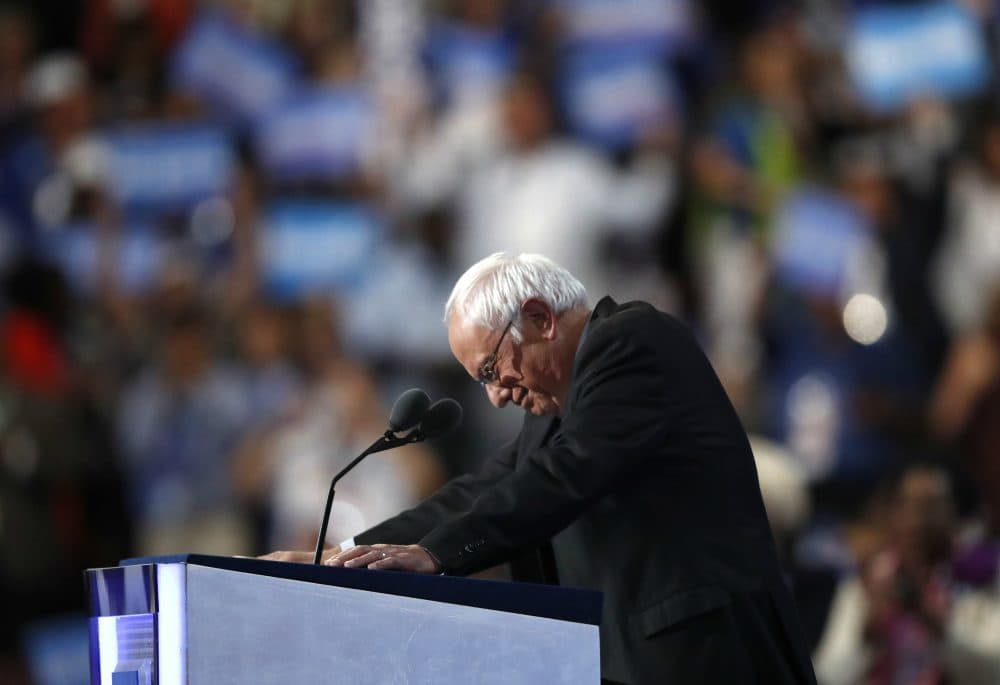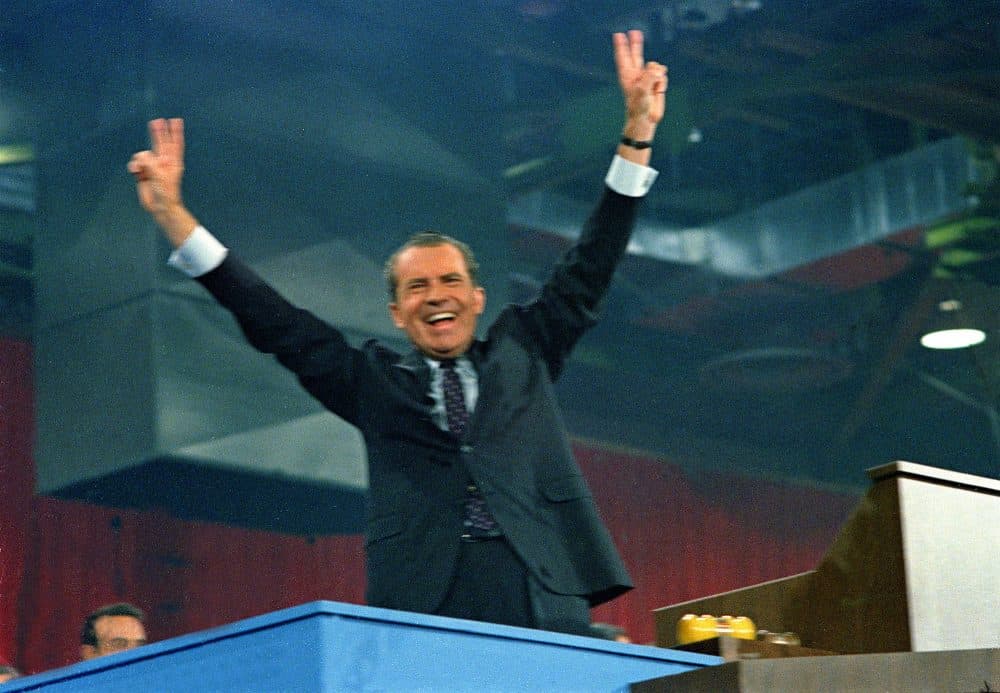Advertisement
Pragmatism Doesn’t Mean Surrender, And 2016 Is Not The Year To 'Vote With Your Feet'

With demonstrators on the streets protesting insider politics and an establishment candidate, pundits have been contrasting this week’s Democratic Party convention to the notorious 1968 Chicago convention. There are certainly comparisons to be drawn and lessons to be learned, especially for a Bernie or Bust contingent that feels frustrated and betrayed. But it’s the parallels to the Republican convention that are actually more striking and instructive.
At the beginning of August 1968, the Republican National Convention nominated the “new” Richard Nixon as its presidential candidate. What made him “new” was a shift from relying on moderate Republicans to a “Southern strategy” that subtly but intentionally pandered to segregationists. (In a stunning 1970 New York Times interview, Nixon’s political advisor, Kevin Phillips, elaborated on this strategy: “From now on, the Republicans are never going to get more than 10 to 20 percent of the Negro vote and they don't need any more than that...The more Negroes who register as Democrats in the South, the sooner the Negrophobe whites will quit the Democrats and become Republicans.”)
The parallels are obvious, though Trump’s sneer, swagger and vindictiveness make the lying, paranoid antics of Nixon look almost quaint.
In his acceptance speech, Nixon declared himself to be a straight talker. “Let us begin by committing ourselves to the truth — to see it like it is, and tell it like it is,” he declared. “… Do you realize that we face the stark truth that we are worse off in every area of the world tonight than we were when President Eisenhower left office eight years ago?”
Sound familiar? So will this. Nixon, the “law and order” candidate, lashed out at the failures of the previous Democratic administration, and condemned the weakened state of the country, both at home and abroad. "When the strongest nation in the world can be tied down for four years in Vietnam with no end in sight,” he thundered, “… when the richest nation in the world can't manage its own economy, when the nation with the greatest tradition of the rule of law is plagued by unprecedented racial violence … then it's time for new leadership for the United States of America." Nixon promised a return to American greatness. “We shall restore the strength of America so that we shall always negotiate from strength and never from weakness,” he vowed.
Swap “the war on terror” with “Vietnam,” substitute “Mexicans” or “Muslims” for “unprecedented racial violence,” replace “deal” with “negotiation,” and you’ll hear Donald Trump channeling Richard Nixon. The parallels are obvious, though Trump’s sneer, swagger and vindictiveness make the lying, paranoid antics of Nixon look almost quaint.
In March of 1968, recognizing and capitulating to the size and strength of the anti-war movement, President Johnson announced that he wouldn’t seek another term. In April, Dr. Martin Luther King was assassinated and 100 cities across the country erupted in rage and despair. In June, Bobby Kennedy — the likely winner of the Democratic nomination and an anti-war candidate — was killed. During the single week of the Democratic convention that year, 308 American soldiers were killed (a fraction of the 16,889 who would die in that year alone). Ten thousand anti-war protesters in Chicago were gassed, clubbed, and arrested nightly on national television by 28,000 Chicago police and Illinois National Guardsmen who (accurately) believed themselves to be unaccountable to anyone.
Advertisement

That was the context in which the Democratic Party leadership anointed Hubert Humphrey as the nominee for president. Though I was too young to join the protesters at the convention, I was old enough to share their rage and despair at a platform and candidate that failed to oppose the Vietnam war, at a candidate who didn’t compete in any primaries and amassed his delegates only in caucus states controlled by party leaders. I joined those who called for Americans to boycott the presidential election and “vote with your feet.”
Today, many impassioned Sanders supporters will see Hillary Clinton’s nomination as a mirror image of Humphrey’s, and come to the same conclusion. While I empathize with their frustration and sense of betrayal, I think they’re wrong, in both their analysis and actions.
Unlike Humphrey, Clinton ran in every primary and amassed almost 3 million more popular votes than did Sanders, 55.2 percent to Sanders’ 43.1 percent. Unlike 1968, the 2016 Democratic Party platform articulates many policies that reflect the ideals and concrete demands of the party’s progressive wing. Of course the platform has many dangerous gaps and rotten boards, which is why some Sanders supporters protest, “Why should I have to choose between the lesser of two evils? Why should I have to settle for a candidate and a platform that I don’t wholeheartedly support?”
My answer is that being a citizen is not the same as being a consumer. We can choose not to buy the phone or the car that doesn’t have our optimal combination of features, but the country is going to end up with a president, with or without our vote. It’s incumbent on us to behave like makers, not consumers, to recognize that any leader is only as strong as the ongoing movement that drives them.
It’s incumbent on us to behave like makers, not consumers, to recognize that any leader is only as strong as the ongoing movement that drives them.
Pragmatism doesn’t mean surrender. But it does mean recognizing that Trump and Clinton are not morally equivalent, and that each will enable the country to move down very different paths. Like Trump, Barry Goldwater was a reckless racist. Like Clinton, LBJ was a foreign policy hawk and social liberal who, when adequately buoyed by a mass movement, got important, progressive legislation passed.
In retrospect, I don’t know if we should have boycotted the election in 1968. But I do know that we were right about the need to look both beyond and below the presidency, to agitate on the local and state level, in the courtrooms and in the streets, to mobilize the masses of people who eventually forced an end to the war and Nixon’s resignation.
Bernie Sanders was there, and he knows it too. In his gracious and very, very smart speech at the convention Monday night, he itemized the areas in which his insurgency has moved the Democratic Party to the left. He delineated the policies with which Clinton agrees, not just to sway his own supporters, but to hold her feet to the fire.
I do know that we were right when we said then, and still say, A Luta Continua. The struggle continues.
